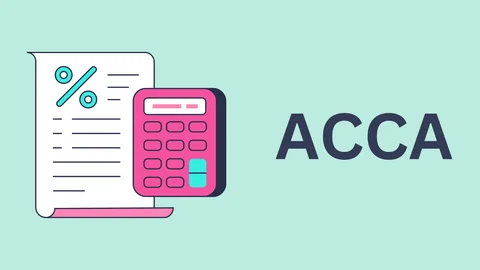Finance
Tips for First-Time Homebuyers

Purchasing a home for the first time is a significant milestone and a complex process that requires careful planning and informed decision-making. For first-time homebuyers, navigating the real estate market can be daunting. This article provides essential tips to guide you through the process, from assessing your financial readiness to closing the deal and moving into your new home.
Assess Your Financial Readiness

Image by jcomp on Freepik
Evaluate Your Savings
Before diving into the home-buying process, ensure you have sufficient savings. Consider the down payment, closing costs, and moving expenses. Ideally, you should have 20% of the home’s purchase price saved for a down payment to avoid private mortgage insurance (PMI) and secure better loan terms.
Check Your Credit Score
Your credit score significantly influences your mortgage rate and loan approval. Obtain your credit report from major credit bureaus and check for inaccuracies. Aim to improve your credit score by paying down debt and avoiding new credit inquiries in the months leading up to your mortgage application.
Create a Budget
Establish a realistic budget that includes all potential homeownership costs, such as mortgage payments, property taxes, insurance, maintenance, and utilities. Use online calculators to estimate your monthly mortgage payments based on different home prices and interest rates.
Get Pre-Approved for a Mortgage
Understand Different Loan Options
Research various mortgage options, including fixed-rate, adjustable-rate, FHA, VA, and USDA loans. Each has distinct qualifications, benefits, and drawbacks. Consult with a mortgage advisor to determine which type best suits your financial situation and long-term plans.
Shop Around for Lenders
Interest rates and fees can vary significantly between lenders. Obtain pre-approval from multiple lenders to compare their offers. A pre-approval letter strengthens your position when making an offer on a home, showing sellers you are a serious and qualified buyer.
Prepare Necessary Documentation
Gather all necessary documents, such as proof of income, tax returns, bank statements, and employment verification, to streamline the pre-approval process. Having these documents ready can expedite your loan application once you find your ideal home.
Research and Choose the Right Neighborhood
Prioritize Your Needs and Wants
List your must-haves and nice-to-haves in a home and neighborhood. Consider factors like commute times, school quality, crime rates, proximity to amenities, and future development plans. Prioritizing these factors will help narrow your search and ensure you choose a location that aligns with your lifestyle.
Visit Multiple Neighborhoods
Spend time exploring various neighborhoods to get a feel for each area. Visit at different times of the day and week to understand traffic patterns, noise levels, and community dynamics. Talking to residents can also provide valuable insights into the neighborhood’s pros and cons.
Evaluate Future Growth and Investment Potential
Research local market trends and future development plans. A neighborhood poised for growth may offer better investment potential, leading to increased property values over time. Consult with real estate professionals to assess the long-term prospects of the areas you are considering.
Find a Real Estate Agent
Choose an Experienced Agent
Select a real estate agent with experience in your desired neighborhoods and a track record of successful transactions with first-time homebuyers. A knowledgeable agent can provide valuable guidance, negotiate effectively on your behalf, and streamline the buying process.
Interview Multiple Agents
Interview several agents to gauge their expertise, communication style, and understanding of your needs. Ask for references from past clients and check their credentials and online reviews. Choosing the right agent is crucial for a smooth home-buying experience.
Understand the Agent’s Role and Compensation
Clarify your agent’s responsibilities and how they are compensated. Typically, the seller pays the agent’s commission, but it’s essential to understand any potential fees. A transparent discussion about compensation ensures there are no surprises later.
Start House Hunting
Use Online Resources
Utilize online real estate platforms to browse listings, view photos, and read property descriptions. Set up alerts for new listings that match your criteria to stay informed about available homes.
Attend Open Houses and Schedule Showings
Visit open houses and schedule private showings for homes that interest you. Taking notes and photos during these visits can help you remember details and compare properties later. Don’t hesitate to ask questions about the home’s condition, history, and any potential issues.
Stay Patient and Flexible
Finding the perfect home may take time. Stay patient and be willing to adjust your criteria if needed. It’s essential to remain flexible and open-minded throughout the process, especially in competitive markets where inventory may be limited.
Make an Offer and Negotiate
Understand the Market Conditions
Analyze current market conditions to determine the best strategy for making an offer. In a seller’s market, you may need to act quickly and offer close to or above the asking price. In a buyer’s market, you might have more room for negotiation.
Work with Your Agent to Draft an Offer
Collaborate with your real estate agent to draft a competitive offer. Include contingencies such as home inspection, financing, and appraisal to protect your interests. Your agent will present the offer and negotiate with the seller on your behalf.
Be Prepared for Counteroffers
Sellers may counter your initial offer. Be ready to negotiate on price, closing date, and other terms. Your agent will guide you through this process, ensuring you make informed decisions.
Conduct a Home Inspection and Appraisal
Hire a Professional Home Inspector
A thorough home inspection is crucial to identify any potential issues or repairs needed. Hire a licensed and experienced home inspector to examine the property. Review the inspection report carefully and discuss any concerns with your agent.
Address Inspection Findings
If the inspection reveals significant problems, negotiate with the seller for repairs, price reductions, or closing credits. Your agent can help you navigate these negotiations to ensure a fair outcome.
Ensure a Fair Appraisal
Lenders require an appraisal to confirm the home’s value aligns with the loan amount. If the appraisal is lower than the purchase price, you may need to renegotiate with the seller or find additional funds to cover the difference.
Close the Deal and Move In
Review Closing Documents
Carefully review all closing documents, including the loan estimate, closing disclosure, and title insurance policy. Ensure all terms and conditions are accurate and address any discrepancies before signing.
Complete the Final Walkthrough
Conduct a final walkthrough of the property to ensure it is in the agreed-upon condition. Verify that all agreed-upon repairs have been completed and that the home is ready for move-in.
Prepare for Moving Day
Plan your move by scheduling movers, packing belongings, and setting up utilities at your new home. Notify relevant parties of your change of address, including the postal service, banks, and employers.
Analysis Table
| Tip Category | Key Points | Importance |
| Assess Financial Readiness | Evaluate savings, check credit score, create a budget | Crucial for understanding affordability and readiness |
| Get Pre-Approved for a Mortgage | Understand loan options, shop around for lenders, prepare documentation | Essential for securing financing and strengthening offers |
| Research Neighborhoods | Prioritize needs, visit neighborhoods, evaluate growth potential | Ensures long-term satisfaction and investment potential |
| Find a Real Estate Agent | Choose experienced agent, interview multiple agents, understand agent’s role and compensation | Critical for expert guidance and negotiation |
| House Hunting | Use online resources, attend open houses, stay patient and flexible | Helps identify suitable properties |
| Make an Offer and Negotiate | Understand market conditions, draft competitive offers, be prepared for counteroffers | Key for successful purchase terms |
| Home Inspection and Appraisal | Hire inspector, address findings, ensure fair appraisal | Protects investment and ensures fair value |
| Close the Deal | Review documents, complete final walkthrough, prepare for moving | Finalizes the purchase process and ensures readiness |
Comparative Table
| Aspect | First-Time Buyers vs. Experienced Buyers | Considerations for First-Time Buyers |
| Financial Readiness | First-time buyers may have less savings and lower credit scores compared to experienced buyers | Importance of saving for down payment and improving credit score |
| Mortgage Pre-Approval | Experienced buyers are typically more familiar with loan options and pre-approval processes | Need for thorough research and multiple pre-approvals to secure best terms |
| Neighborhood Research | Experienced buyers may have established preferences and knowledge about desirable neighborhoods | Necessity of detailed research and prioritization of needs and wants |
| Real Estate Agent Selection | Experienced buyers often have established relationships with agents | Importance of interviewing and selecting an agent experienced with first-time buyers |
| House Hunting | Experienced buyers may have a clearer idea of what they want | Need for flexibility and patience during the search process |
| Offer and Negotiation | Experienced buyers may have stronger negotiation skills and better understanding of market conditions | Importance of relying on agent’s expertise for drafting offers and negotiating terms |
| Home Inspection and Appraisal | Experienced buyers are more likely to be familiar with inspection and appraisal processes and what to look for | Importance of hiring professional inspectors and understanding the appraisal process |
| Closing the Deal | Experienced buyers are typically more familiar with the closing process and necessary documentation | Need for careful review of all closing documents and completion of final walkthrough |
Conclusion
Purchasing your first home is a monumental step that involves careful planning, research, and informed decision-making. By assessing your financial readiness, obtaining pre-approval for a mortgage, and thoroughly researching neighborhoods, you can set a strong foundation for your home-buying journey. Selecting an experienced real estate agent, being patient and flexible during house hunting, and making informed offers will further guide you toward a successful purchase.
The importance of conducting a professional home inspection and ensuring a fair appraisal cannot be overstated, as these steps protect your investment and ensure you are getting the best value for your money. Finally, understanding the closing process and preparing adequately for moving day will help you transition smoothly into your new home.
By following these tips and conducting thorough research, first-time homebuyers can navigate the complexities of the real estate market with confidence and make informed decisions that lead to successful and satisfying homeownership.
Finance
Choosing the Right ACCA Institute: Your Path to Success

The ACCA (Association of Chartered Certified Accountants) qualification is one of the most respected and internationally recognized certifications in accounting, finance, and business management. For aspiring professionals in India, particularly in Mumbai—the country’s financial capital—enrolling in a reputed ACCA institute can be a transformative step in building a successful career. The combination of global recognition, practical skill development, and exposure to the city’s dynamic financial environment makes Mumbai a hub for ACCA aspirants.
Mumbai’s financial landscape includes the Bombay Stock Exchange, Reserve Bank of India, multinational corporations, and consulting firms. This provides students with unique opportunities to connect theoretical knowledge with real-world financial operations. Choosing the right ACCA institute in Mumbai ensures structured guidance, access to professional networks, and preparation for both exams and future career growth.

Understanding the ACCA Qualification
The ACCA qualification equips professionals with comprehensive expertise in accounting, financial management, taxation, auditing, and corporate governance. Unlike traditional degrees that primarily emphasize theory, ACCA focuses on practical application, ethical decision-making, and analytical thinking. This ensures that professionals are ready to handle complex business challenges and contribute to organizational success.
The ACCA syllabus is divided into three levels:
- Applied Knowledge – Introduces basic accounting principles, management accounting, and business fundamentals
- Applied Skills – Builds competencies in taxation, financial management, audit, and law
- Strategic Professional – Focuses on advanced business strategy, leadership, risk management, and professional ethics
ACCA certification is recognized in over 180 countries, enabling graduates to pursue careers internationally. It is especially valuable for roles that require strategic insight, analytical skills, and financial leadership.
Why Mumbai Is Ideal for ACCA Aspirants
Mumbai offers unique advantages for ACCA students due to its status as India’s financial and corporate capital:
1. Corporate Exposure
Mumbai hosts a concentration of multinational companies, investment banks, and consulting firms. This allows ACCA students to gain exposure to real-world business scenarios, attend corporate workshops, and network with industry leaders.
2. Internship and Job Opportunities
Being in Mumbai increases access to internship programs and part-time roles in leading firms. Practical experience alongside ACCA training helps students apply theoretical concepts and enhances employability.
3. Networking Opportunities
Mumbai provides a thriving professional network. Interaction with peers, alumni, and mentors in seminars, conferences, and workshops can open doors to collaborations, job referrals, and guidance from experienced professionals.
4. Access to Reputed ACCA Institutes
Several top-rated ACCA institutes in Mumbai provide structured learning, experienced faculty, and resources designed to maximize exam success. These institutes also offer placement support, career counseling, and skill enhancement workshops.
Features of a Leading ACCA Institute
Selecting the right ACCA institute in Mumbai is crucial for achieving certification and career growth. Key features of a quality institute include:
Expert Faculty
Top institutes employ ACCA-qualified trainers with international exposure. Their guidance helps students navigate complex topics, understand practical applications, and develop exam strategies.
Structured Curriculum
Reputed institutes follow a comprehensive syllabus aligned with ACCA global standards. Regular tests, mock exams, and revision sessions ensure students are thoroughly prepared for each paper.
Flexible Learning Options
Recognizing that many students are working professionals, institutes offer evening, weekend, and online classes. This flexibility allows students to balance work, studies, and exam preparation effectively.
Comprehensive Study Material
Institutes provide updated study resources, case studies, and digital tools to enhance learning. Access to mock tests and question banks improves practice and confidence.
Career Support
Many institutes offer career counseling, internship guidance, and placement support. They also assist with resume building and interview preparation, ensuring students are job-ready upon completing their ACCA qualification.
Benefits of ACCA Certification
Pursuing ACCA in Mumbai offers multiple advantages for career development:
Global Recognition
ACCA is internationally respected by employers, regulatory bodies, and financial institutions. Certification enables professionals to work across countries and industries.
Career Advancement
ACCA graduates can pursue diverse roles, including Chartered Accountant, Management Accountant, Finance Manager, Risk Analyst, Auditor, and CFO. The qualification equips professionals for strategic and leadership roles.
Practical Skill Development
ACCA focuses on applying accounting principles in real-world scenarios. Professionals develop analytical, managerial, and ethical skills that are essential in complex business environments.
Higher Earning Potential
ACCA-certified professionals often earn higher salaries than peers without certification, reflecting their advanced skills, credibility, and global recognition.
Career Opportunities for ACCA Graduates
ACCA opens the door to a wide range of career paths:
- Chartered Accountant: Managing audits, financial reporting, and compliance
- Management Accountant: Guiding internal financial strategy and decision-making
- Financial Analyst: Evaluating investment opportunities and company performance
- Audit and Assurance Specialist: Assessing risk, compliance, and internal controls
- Corporate Finance Consultant: Advising businesses on mergers, acquisitions, and capital management
Mumbai’s thriving business ecosystem allows ACCA graduates to gain practical exposure while continuing their studies, making them highly competitive in the job market.
Eligibility Criteria for ACCA in Mumbai
To enroll in ACCA, students must fulfill the following:
- Academic Qualification: Completion of 10+2 or equivalent
- Graduates/Professionals: Students with a commerce or finance background may receive exemptions for certain papers
- Work Experience: While not mandatory for enrollment, completing relevant experience strengthens career prospects and helps in attaining the ACCA designation
Many institutes also provide guidance on exemptions, exam registration, and work experience documentation.
Tips for Selecting the Right ACCA Institute
Choosing the best ACCA institute in Mumbai requires careful consideration:
- Accreditation: Ensure the institute is recognized by ACCA Global
- Experienced Faculty: Trainers should hold ACCA certification and industry experience
- Success Rates: Institutes with higher pass percentages indicate effective teaching
- Comprehensive Resources: Access to mock tests, digital tools, and study materials is essential
- Placement Support: Institutes providing internships and career guidance add significant value
A quality institute ensures students not only clear exams but also develop industry-ready skills.
Conclusion
Enrolling in a leading ACCA institute in Mumbai is a strategic step for anyone aspiring to build a successful career in finance and accounting. The city’s corporate ecosystem, combined with the global recognition of ACCA, offers unparalleled opportunities for learning, networking, and career advancement.
Mumbai provides access to internships, corporate workshops, professional mentors, and industry events, making it ideal for ACCA aspirants. By choosing a reputed institute, students receive expert guidance, structured learning, and career support that collectively enable success in exams and the professional world.
For students and professionals seeking international recognition, strategic career growth, and the ability to influence business decisions, pursuing ACCA in Mumbai is more than just a qualification—it’s a gateway to a globally respected and rewarding professional journey.
Frequently Asked Questions (FAQs)
1. Who is eligible for ACCA in Mumbai?
Students must have completed 10+2 or equivalent. Graduates may receive exemptions based on prior qualifications.
2. How long does it take to complete ACCA?
Typically 2–3 years, depending on exemptions and study pace.
3. Can working professionals pursue ACCA?
Yes. Institutes provide flexible timings and online classes.
4. Is ACCA recognized globally?
Yes. ACCA is recognized in over 180 countries and valued by employers worldwide.
5. Do institutes provide placement support?
Yes. Reputed institutes offer internships, placement assistance, and career counseling.
“Learn how to streamline WooCommerce data with the Google Sheet Connector for optimized efficiency.”
Business
Shiva Online Book: For Your Sports Betting and Casino Games

Shiva Online Book is a well-known online betting platform that has gained strong popularity among Indian users who are interested in sports betting and online gaming. With a focus on simplicity, fast access, and real-time betting features, Shiva Online Book has become a trusted choice for players looking for a reliable online book ID.
The platform offers a wide range of betting options, especially in cricket, along with casino games and live betting opportunities, making it suitable for both beginners and experienced players.

What Is Shiva Online Book?
Shiva Online Book is an online bookmaking platform that allows users to place bets on various sports and casino games through a secure digital system. Instead of visiting physical bookmakers, users can access all betting features online using a unique betting ID. This ID enables players to log in, view live odds, place bets, manage funds, and track results easily.
The platform is designed to work smoothly on mobile phones, tablets, and desktops, ensuring that users can enjoy betting anytime and from anywhere. Its clean interface and easy navigation make it especially appealing to new users who may not be familiar with online betting systems.
Sports Betting Options on Shiva Online Book
One of the biggest strengths of Shiva Online Book is its wide sports betting coverage. Cricket is the most popular sport on the platform, especially among Indian users. Players can place bets on international matches, domestic leagues, T20 tournaments, ODIs, and Test matches.
Apart from cricket, Shiva Online Book also provides betting options on other sports such as football, tennis, basketball, and more. Users can choose from pre-match betting or live betting, where odds change in real time based on match conditions. This live betting feature adds excitement and allows users to make strategic decisions during ongoing matches.
Online Casino Games Availability
In addition to sports betting, Shiva Online Book offers a variety of online casino games. These include popular games such as teen patti, poker, blackjack, roulette, andar bahar, and slots. Many of these games are available in live dealer format, giving users a real casino-like experience from their screens.
Casino games on the platform are designed to be fast-loading and easy to play. Users can switch between sports betting and casino games using the same betting ID, which adds convenience and flexibility.
Live Betting and Real-Time Odds
Live betting is a key feature that sets Shiva Online Book apart from many other platforms. Users can place bets while a match is in progress, with odds updating instantly based on the action on the field. This feature is especially popular during live cricket matches, where momentum can change quickly.
Real-time odds help users make informed decisions. The platform ensures minimal delay in updates, allowing players to respond quickly to changing match situations. This makes live betting engaging and dynamic.
How to Get a Shiva Online Book ID
Getting started on Shiva Online Book is simple. Users need to obtain an online betting ID from an official agent or trusted source. The process usually involves sharing basic details and completing a quick verification step. Once the ID is created, users receive login credentials that allow immediate access to the platform.
After logging in, users can add funds to their account and start placing bets. The entire process is designed to be quick, so users do not have to wait long to begin using the platform.
User-Friendly Interface and Easy Navigation
Shiva Online Book is built with a focus on user experience. The interface is clean, well-organized, and easy to understand, even for first-time users. Sports categories, live matches, casino games, and account details are clearly displayed.
Navigation between different sections is smooth, and important information such as odds, match status, and balance is always visible. This helps users stay in control of their betting activities without confusion.
Secure Platform and Safe Transactions
Security is a major concern for online betting users, and Shiva Online Book addresses this effectively. The platform uses secure systems to protect user data and transactions.
User information is kept confidential, and the platform follows strict privacy practices. This builds trust and encourages users to continue using the service confidently.
Fast Deposits and Withdrawals
Another important advantage of Shiva Online Book is its fast transaction system. Users can deposit funds easily and start betting almost instantly. Withdrawals are also processed quickly, which is a major factor in user satisfaction.
The platform supports multiple payment options, making it convenient for users across India. Quick fund management ensures that users can focus on betting without unnecessary delays.
Customer Support and Service
Shiva Online Book provides responsive customer support to assist users with queries related to account access, betting issues, payments, or technical problems. Support is usually available through messaging platforms or direct contact with agents.
Quick and helpful customer service plays a big role in maintaining user trust and ensuring a smooth betting experience.
Why Users Prefer Shiva Online Book
There are several reasons why users choose Shiva Online Book over other online betting platforms. These include easy account setup, wide sports and casino options, real-time odds, fast payments, and a stable platform. The ability to access everything using a single betting ID adds to its convenience.
Both casual players and regular bettors find the platform suitable due to its balance of simplicity and advanced features.
Responsible Betting Awareness
While Shiva Online Book offers exciting betting opportunities, it is important for users to practice responsible betting. Setting limits, understanding the risks, and betting within one’s budget are essential habits. The platform is designed for entertainment purposes, and users should always play responsibly.
Conclusion
Shiva Online Book stands out as a reliable and user-friendly online betting platform for Indian users. With strong coverage of cricket and other sports, a wide selection of casino games, live betting features, and fast transactions, it provides a complete betting experience.
Its easy-to-use interface, secure system, and responsive support make it suitable for beginners as well as experienced players. For users looking for a trusted online book ID and a smooth betting journey, Shiva Online Book continues to be a popular and dependable choice.
Business
Maximize Your Progress with Path of Exile 2 Currency

Basic currency is essential to crafting, trading and progressing in Path of Exile. From efficient map runs and vendor recipes to league mechanics and league bonuses, having enough basic currency at your fingertips is crucial to progress.
PoE 2 currency items such as Chaos Orbs and Regal Orbs which reroll random modifiers, Orbs of Alchemy that upgrade equipment, and more cost money – but what will it take to obtain enough of these currency items?

Benefits
Path of Exile 2’s currency plays an integral part of its gameplay. Players use it for trading, crafting, and upgrading gear and skill gems; players can obtain these items through various methods including map runs, vendor recipes and league mechanics – though these methods may take more time and frustration than necessary.
Notably, some of the most valuable items in the game require high-level currencies that can be difficult to come by. Divine Orb is one of the most sought-after currency items because it enhances rare gear modifiers; however, finding it can be challenging as monsters only drop it at very low rates. Other items, like Chaos Orb and Perfect Jeweller’s Orb can be obtained through efficient map runs or Vendor Recipes; however these methods may not always prove successful and profitable.
Safety
Path of Exile 2 Gold can be an invaluable way to fast-track your progression in Wraeclast, but only from trusted sources. A secure marketplace such as Thepoecurrency.com gives access to reliable sellers who offer quick delivery times.
PoE 2 Gold offers another benefit for players: bypassing the grinding grind faster to acquire valuable items and high-tier content faster. Unfortunately, however, its purchase comes at both financial and time expense for some players, potentially not being worth their while in terms of investment returns.
Purchase gold from unapproved sources or websites could result in violating the game’s Terms of Service and account penalties; this risk increases with unlicensed sellers; avoid this possibility by only purchasing from reputable sellers on official marketplaces such as Thepoecurrency.com which specialize in trading in-game items, currencies and orbs.
Speed
Acquiring high-level gear and items in Path of Exile 2 can take time. By purchasing gold, players can bypass this tedious process and focus on progressing their characters more rapidly.
No matter your experience level in the game, purchasing gold can help you progress faster. It allows you to speed through endgame content and unlock powerful build-enhancing modifiers. Additionally, buying gold saves time by eliminating tedious tasks. You won’t need to farm monsters, complete maps, or search for rare materials and items.
Buying PoE 2 currency should only be done through reliable marketplaces like Thepoecurrency.com. Avoid third-party websites, Discord servers, Instagram accounts, and Reddit posts that claim to offer deals. Such activities could be scams. They may also violate the game’s terms of service, leading to account suspension or bans.
Thepoecurrency.com offers secure and fast online transactions. They provide 24/7 customer support and the lowest market prices. This is possible due to numerous sellers competing for your business. You can use credit cards, PayPal, Przelewy24, SMS Mobile App, or Mobile App payments when buying Path of Exile 2 orbs and currency items from this marketplace.
Convenience is key
PoE 2 Currency items can help your character advance faster, making endgame content less of a chore to manage. But finding the perfect combination of items and orbs can take time; therefore purchasing currency from trusted marketplaces may save hours of work time while giving you more time to enjoy playing the game!
Path of Exile 2 boasts an intricate economy with essential currency items used for crafting, trading and progression such as Exalted Orbs, Chaos Orbs and Regal Orbs that each have different functions to help players build powerful builds in Wraeclast and advance in Wraeclast.
Thepoecurrency.com is an established poe 2 currency tab exchange platform offering fast and secure transactions to gamers. Their competitive prices and exceptional customer service make Thepoecurrency.com attractive to gamers seeking to maximize character potential more quickly while enjoying the game more readily. Thepoecurrency.com ensures customers receive their orders within minutes of purchase for an effortless shopping experience.
Path of Exile 2 Currency
Path of Exile 2 is an exciting action RPG with high-definition visuals and engaging gameplay, boasting powerful skill gems, 19 Ascendancy Classes, Engine Improvements, and much more.
Currency Items in Path of Exile can be used for bartering, upgrading equipment, purchasing items from vendors and unlocking in-game content. They can be obtained from monsters, treasure chests, destructible containers or strongboxes.
What is Exalted Orb?
Exalted Orb is one of poe 2 currency items and plays an integral part in its economy. Used to reroll modifier values on rare gear and craft high-end equipment, Exalted Orb plays an integral part in maintaining game equilibrium.
Players can obtain Exalted Orbs through multiple means in the game: killing monsters, vender recipes or by completing main storyline quests and trading with other players.
These orbs are essential in improving rare gear, as they add random affixes that can significantly boost its power. Furthermore, these orbs serve as currency between players for trades as they are highly sought-after and sought after.
Timesaving strategies often involve purchasing path of exile 2 orbs online from an established provider like Thepoecurrency.com . Not only is their safe and secure platform provides fast delivery times but they offer competitive prices due to multiple sellers on board.
-
Business3 years ago
Cybersecurity Consulting Company SequelNet Provides Critical IT Support Services to Medical Billing Firm, Medical Optimum
-
Business3 years ago
Team Communication Software Transforms Operations at Finance Innovate
-
Business3 years ago
Project Management Tool Transforms Long Island Business
-
Business2 years ago
How Alleviate Poverty Utilized IPPBX’s All-in-One Solution to Transform Lives in New York City
-
health3 years ago
Breast Cancer: The Imperative Role of Mammograms in Screening and Early Detection
-
Sports3 years ago
Unstoppable Collaboration: D.C.’s Citi Open and Silicon Valley Classic Unite to Propel Women’s Tennis to New Heights
-
Art /Entertainment3 years ago
Embracing Renewal: Sizdabedar Celebrations Unite Iranians in New York’s Eisenhower Park
-
Finance3 years ago
The Benefits of Starting a Side Hustle for Financial Freedom






























